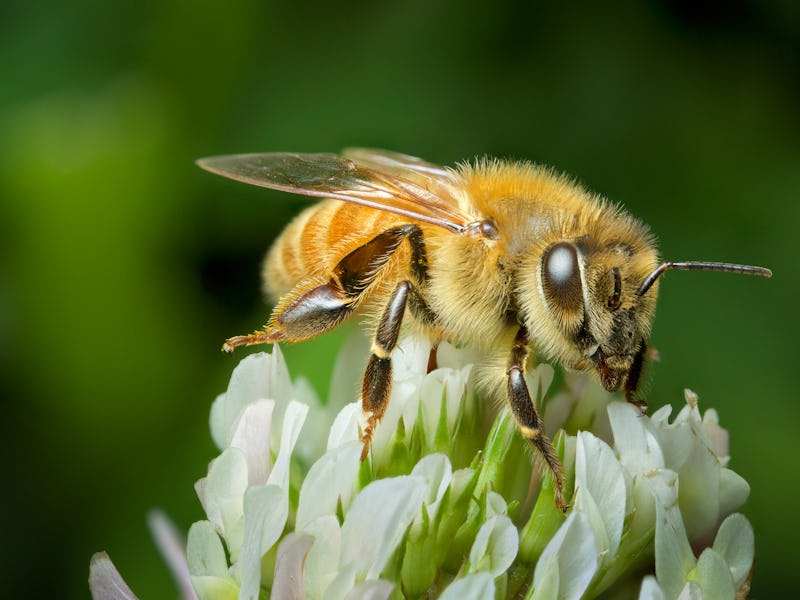Is This Bacteria the Key to Saving Bees From Pesticides?
A team of college students thinks their pro-bee-otic could save the bee population.

These students are on a mission to save the bees.
A team of students at the University of British Columbia spent their summer trying to genetically modify bacteria so that it breaks down pesticides in the guts of bees.
Global bee declines are a major problem, because so much of the food we eat depends on pollination by insects.
Pesticide use on crops is widely suspected as a major contributor to failing bee populations. Because, duh, they’re designed to kill insects.
Just last week, a U.S. court overturned Environmental Protection Agency approval of a pesticide in the neonicotinoid class because of the risk it poses to bees.
A student hangs with a bee in the lab.
The students are taking a new approach to the problem. They picked a type of bacteria that is only found in bee guts, and they’re trying to alter its genes so it helps break down neonicotinoids ingested by its host bee.
The research is in early stages, and success is far from guaranteed. If it works, though, it could be a very sweet solution to protecting bees and breaking down environmental toxins.
Team member Jeanne Chan tells Inverse in an email that the group considered the alternative solution of simply banning neonicotinoids, but came to the conclusion that these pesticides are “basically essential for our current state of agriculture.” She pointed to evidence from Europe, where neonicotinoids were banned in 2005 and the result was widespread pest infestations of crops.
“This is why we proposed a pro-bee-otic, which would act as a cure for specifically honeybees, whilst allowing the neonicotinoids to work on the pests,” she writes.